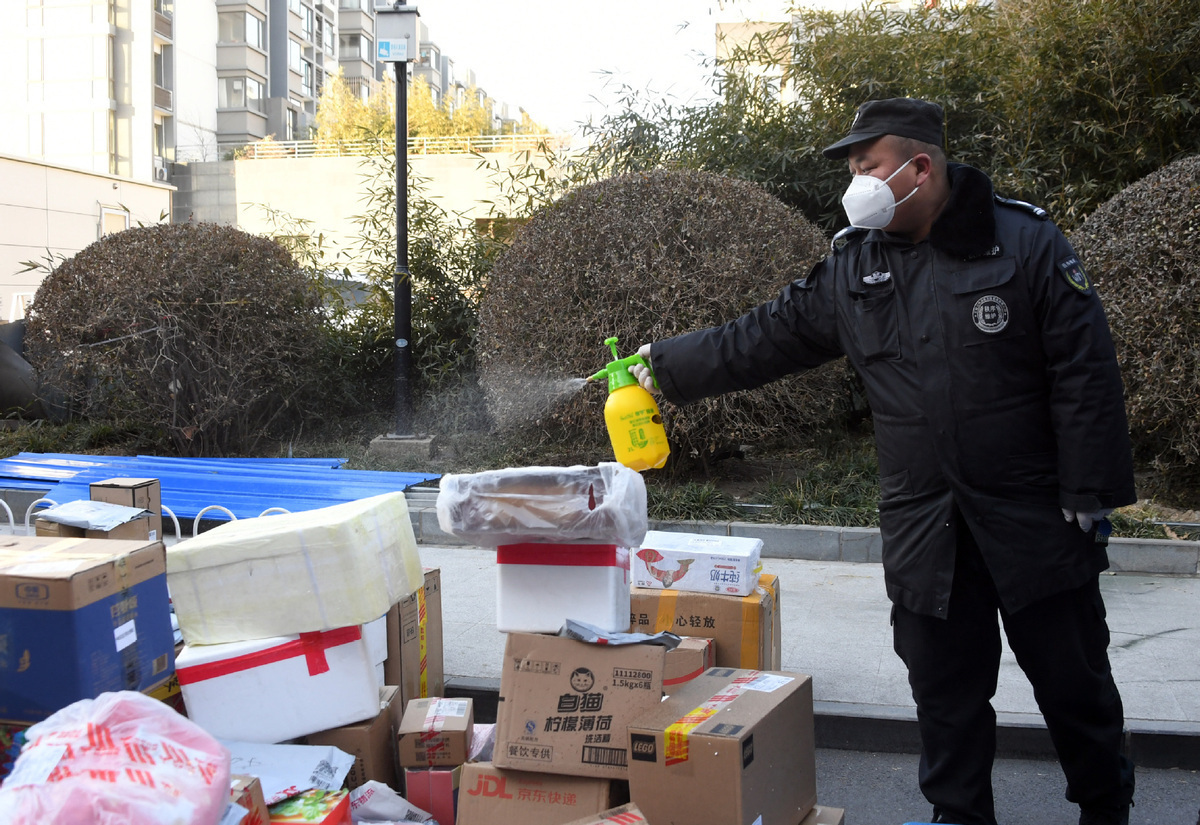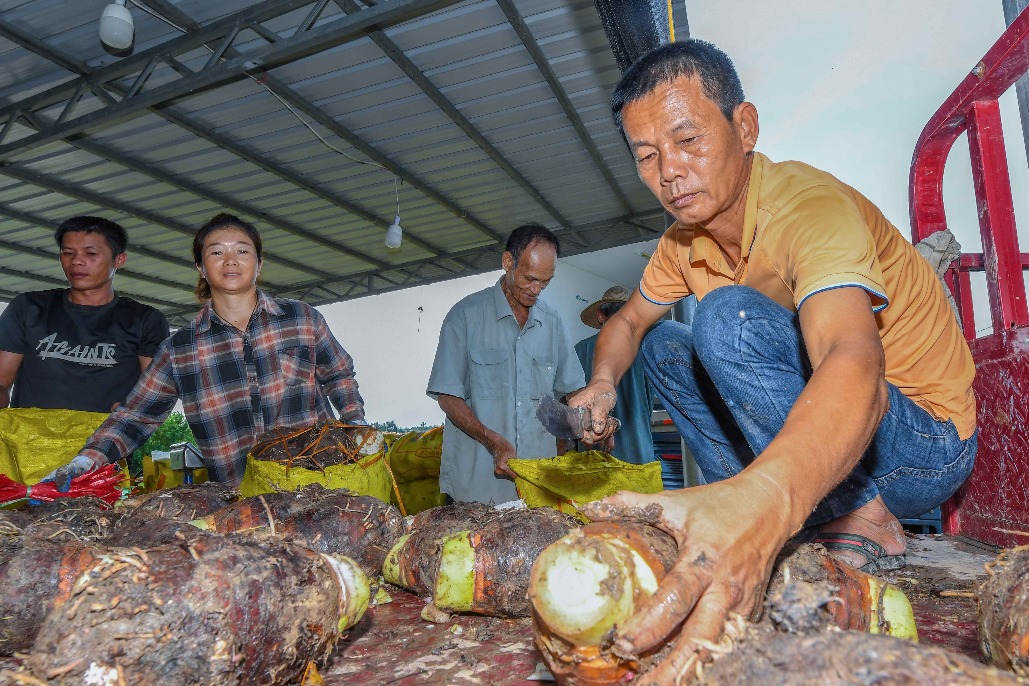Beijing cluster linked to overseas mail


Article on January case says low temperatures, high elevation might help spread virus via paper
Chinese researchers have found that a COVID-19 cluster detected in Beijing in January involving the Omicron strain was likely caused by contaminated overseas mail, and they called for strengthened monitoring and disinfection of imported mail to curb the risk of infection.
Beijing registered this year's first Omicron case, that of a 26-year-old woman, on Jan 15. Five of her close contacts tested positive in the following seven days, according to an article published in late February on China CDC Weekly, an academic platform established by the Chinese Center for Disease Control and Prevention.
Investigations led by disease control and prevention workers in Beijing found that the patient had no travel history outside Beijing and had not come into contact with high-risk groups. However, she sent and received international mail from time to time for work.
One particular package-delivered from abroad on Jan 7 and received by her on Jan 11-tested positive for the virus, despite its outer surface having been disinfected when the parcel arrived in the Chinese capital.
The article said that 12 of the 22 samples collected from the package tested positive. Samples were taken from the parcel's outer surface and inner packaging and papers that were inside.
Some of the positive samples had been taken from areas of the package that had not been touched by the patient, the article said.
"More importantly, genome sequencing showed that the genome of the case matched the samples collected from the mailed documents, which differed from other local strains in China," it said.
It is generally believed that the novel coronavirus survives longer on plastic and stainless steel than on paper. But the article said that low temperatures and high elevation could contribute to the virus's spread via documents.
"Our data emphasized the surveillance and disinfection of imported express cargo in COVID-19 control, especially in certain seasons and regions in China," it said.
Experts have long said there is a risk of virus transmission via the cold chain. Over the past winter, however, several cases were suspected to have been connected to international packages.
Zhang Liubo, chief disinfection expert at the China CDC, said during an earlier interview that as the COVID-19 pandemic is still developing, mail and cargo from overseas are likely contaminated by the virus. Though some viruses will die off during shipping, some could remain infectious in specific circumstances, he said.
Zhang said that high viral load of contaminated contents, cold temperatures in winter and short shipping periods via airfreight could increase the risk of the virus's spread.
As it was the recipient, rather than postal workers, who was found to be infected in some cases, Zhang said more attention should be paid to the virus's transmission ability via the inside of packages.
Precautions encouraged
Postal authorities in Qingdao, Shandong province, suggested on Monday that customers should refrain from buying overseas goods from online shopping platforms or receiving overseas mail.
When receiving or opening such documents or packages, people are advised to wear masks and disposable medical gloves and to keep a distance from postal workers, they said.
Authorities in Shenzhen, Guangdong province, also asked people to receive a nucleic acid test within two days after receiving international mail and to step up personal health monitoring.
Xu Fan, a resident of Beijing, said she still buys overseas goods because some are not sold in brick-and-mortar stores in China and they usually come with large discounts.
However, upon receiving them, she sprays disinfectant all over the packages and leaves them in a corner of her room for about 14 days before opening them.
"I heard that the risk of getting infected via goods is low, but it is better to be safe than sorry," she said.




































